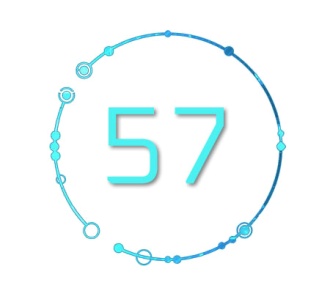

Orfyn
Lake unmerged two days ago, and Marty was yesterday. We were told their procedures were a success. I have to believe they’re telling us the truth, because the alternative is too terrible to imagine. I’ve not seen Jules since that day we learned she was their spy. She may be in the process of merging, but I hope she decided to follow her own dreams. The Darwinians said they’d unmerge the kids on the third floor after me, and Stryker believes they’ll go through with it.
I’m next.
Anna asked if we could hold our last meeting in the greenhouse. It was empty the only time I’ve been up here, so I don’t expect to come upon what I do. The sunny room is filled with potted plants in a spectrum of colors.
“What’s all this?” I ask Anna.
“Wheat.”
“Did you plant these?”
“Yeah, I did,” she says, looking proud of herself.
The wheat plants are neatly labeled with their common and Latin names, and there’s a list of dates and measurements. How did the girl with a serious case of don’t-mess-with-me-itus become so fascinated with wheat?
Stryker is braver than me when he says, “You’ve been holding out on us, Anna. When did your life’s goal change to involve dirt and manure?”
I expect her to rip off his head, but she says, “Who knew, right? Before coming here, I’d never grown a plant in my life. Then I couldn’t get it out of my head that there’s a greenhouse up here with nothing living in it. Before I knew it, I was researching strains of wheat from throughout history, and figuring out how to get hold of these rare seeds.”
Who is this girl?
Anna points to a stalk with thin, tightly-woven spikes. “This is Einkorn. It’s the same species grown by Egyptians two thousand years ago to feed the Roman Empire.” She lovingly touches the one next to it. “And this is Turkey. It’s the wheat that cultivated America’s Great Plains.”
“That’s pretty cool,” I say, and I mean it.
She smiles in pleasure. Anna.
I take some time to appreciate the plants’ shades and heights and textures. Some are tall with long, reaching leaves. Some are short with thick, juicy-looking kernels. They’re all a work of art.
“I eventually learned that my Mentor grew up on a wheat farm in Montana,” Anna says. “She makes it sound like a really nice place.”
“She’s influencing you in a good way.” Stryker shakes his head in wonder.
Anna cups a shaft of wheat in her hand with more tenderness than I ever imagined she could. “Wheat is a poison to some people’s immune systems, but it’s also been the builder of societies across the ages. It showed me that nothing is fundamentally bad or good.”
I have a feeling she’s not only talking about wheat.
“For the first time since I can remember, I’m at peace,” Anna admits. “I don’t want to go back to the person I was. I’m not unmerging.”
I know what the next five years of her life will be like. Monitored. Work-obsessed. Isolated. And Anna is choosing to stay because her Mentor helped her discover a better version of herself. We could’ve become friends if Bat wasn’t making me unmerge.
“Good for you, Anna,” Stryker says.
“What about you, Stryker?” she asks. “Are you staying or leaving?”
“I’m not going anywhere. I plan to be more famous than Gandhi.” He almost pulls it off, but I know the truth about his past. He’s not doing this for fame.
I think I finally understand what his private conversation with the Darwinians was about. Stryker must have cut a deal to give them one success, no matter who else unmerged. He sacrificed himself for our Nobel class. I wish I could tell Lake.
“It’s kind of saintly what you did for us,” I offer.
He nods, acknowledging that I’m not too far off track. “What about you, Art? Are you staying here in Never Never Land with Mother Nature and me?”
I run my fingertips along the stalks of Buckskin-Red Winter—for higher elevations, as Anna’s label informs me.
“I’m going to figure out how to change the world on my own.”